Sports serve as a powerful platform for cultural exchange, bridging divides through shared discipline and teamwork. While structured presentations and events certainly play a role in showcasing progress and fostering connections, the most meaningful interactions often occur in the moments of discomfort and vulnerability, such as navigating language barriers and cultural differences while collectively working towards a common goal.
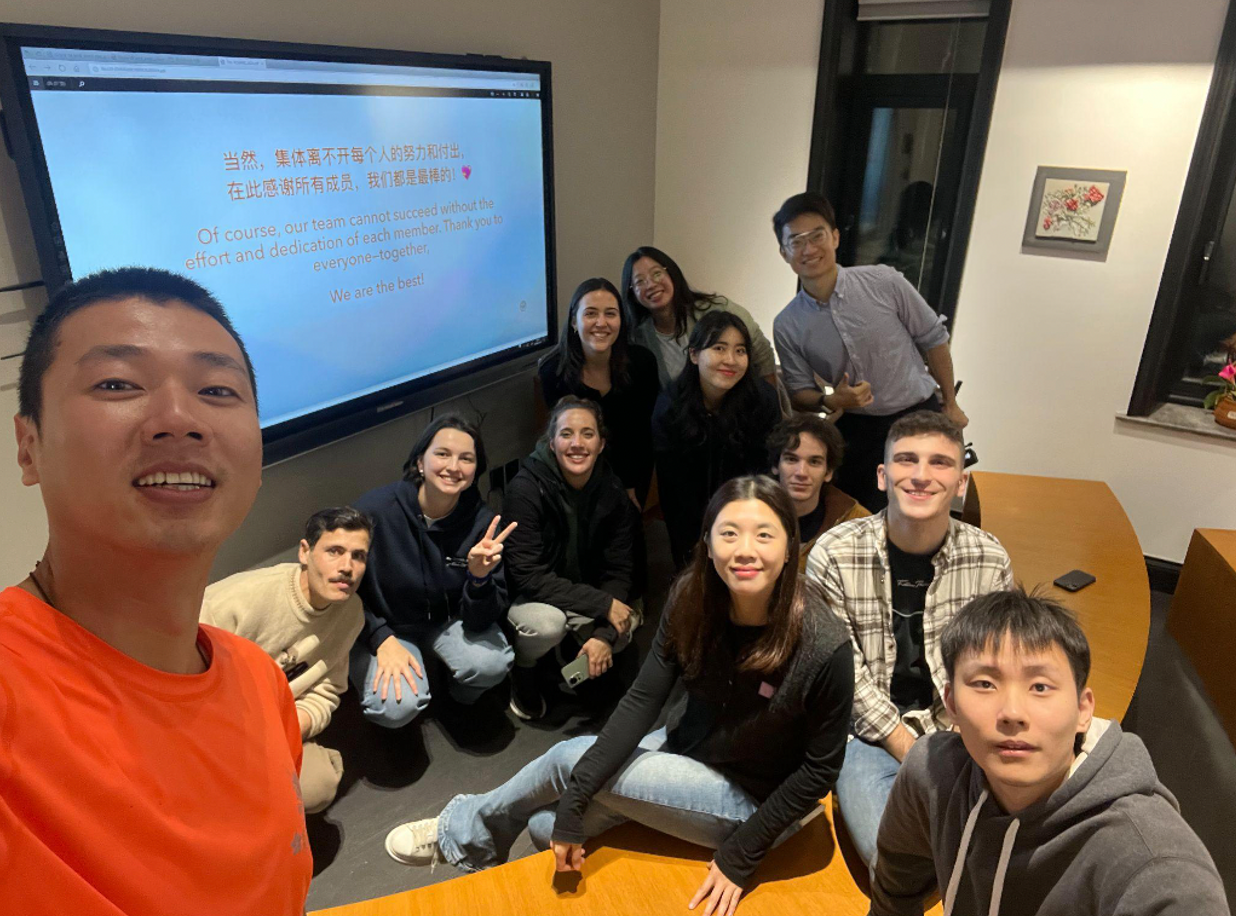
Sports have shaped my life since childhood. Some of my first friends were made on my local swimming team. I learned about teamwork through middle school soccer and discipline through my high school track and field team. My greatest experience, however, was competing in rowing. It was a sport that took me across the United States, and for all the pain of waking up at five in the morning to practice or pushing through hand blisters and cramping muscles, nothing could ever beat the rush of fighting alongside my teammates. One of my biggest regrets was leaving the sport during my undergrad years, and I never thought that I would get the opportunity to row competitively again. I certainly didn’t think the chance would find me in China of all places.
It came as no surprise to my friends and family when I announced that I would be moving to Beijing to pursue a second master's degree in Chinese politics. From the age of fifteen I had made it clear that my future was in China, and there was nothing anyone could do to change my mind. Passion, however, does not automatically mean success, and I found myself struggling in my first year with everything from language barriers, confusing social dynamics, and just flat-out exhaustion. It was devastating. For ten years, I had dreamed of going to school full-time in China, and it felt like I was completely failing at my one goal. In an act of desperation, I threw myself into my university’s club day with the goal of putting my name down for as many clubs as possible in hopes that maybe, one of them would become a space of comfort amidst chaos. I was overjoyed to realize that a group of Chinese students had started a budding rowing club on campus, and the moment I signed my name on their sign-up sheet, my fate was sealed.
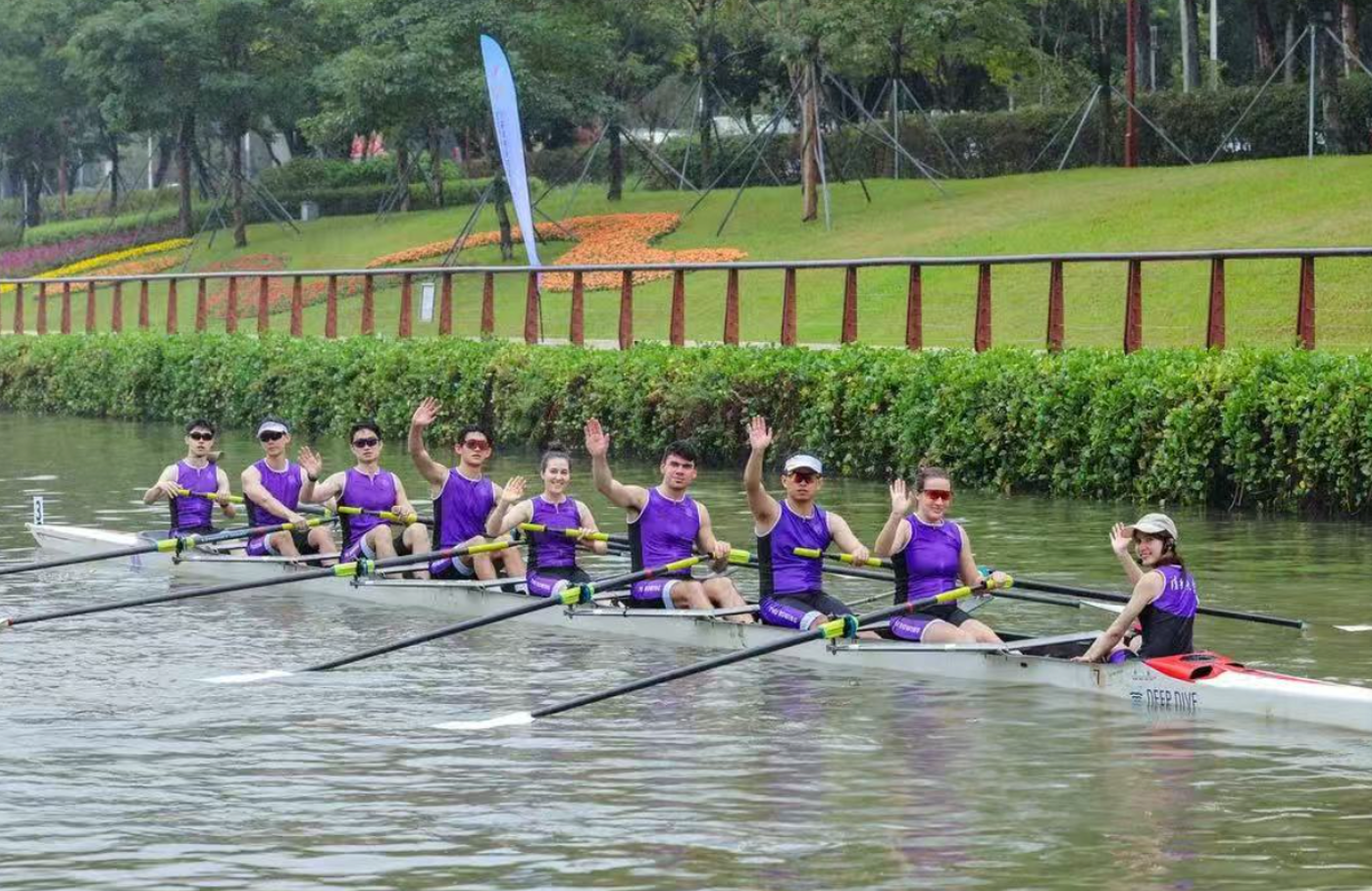
What began as a simple hobby evolved into a unique opportunity for connection and exchange, where I was able to use my experience to help coach and lead a sports club filled with Chinese and foreign students alike.
Practices are a constant thrum of translation as students from all corners of the globe come together to train in unison. As a club team, it can be difficult to find a consistent location to practice, but whether rain or shine, running from an angry Schnauzer on a pool deck, or taking the subway for two hours, we find a way, because every single member of our rowing club, regardless of background, loves the sport dearly. No experience has brought me closer to my Chinese classmates or helped me better understand China. The very nature of this experience also serves as a valuable talking point for friends and family back home who have endless questions about what life is like in the country.
It’s rare to meet a young American who spends their college years studying in China—there are only around 700 American students in the country today. Even fewer compete in sports. As one of those select few, my unique position has helped me see a different side of China than most. Rowing has taken my team across the country, from Shenzhen to Chengdu, where we engage with students from a wide range of Chinese universities. At times, we even cross paths with future members of Team China, offering a thrilling glimpse into the nation’s rising competitive potential.
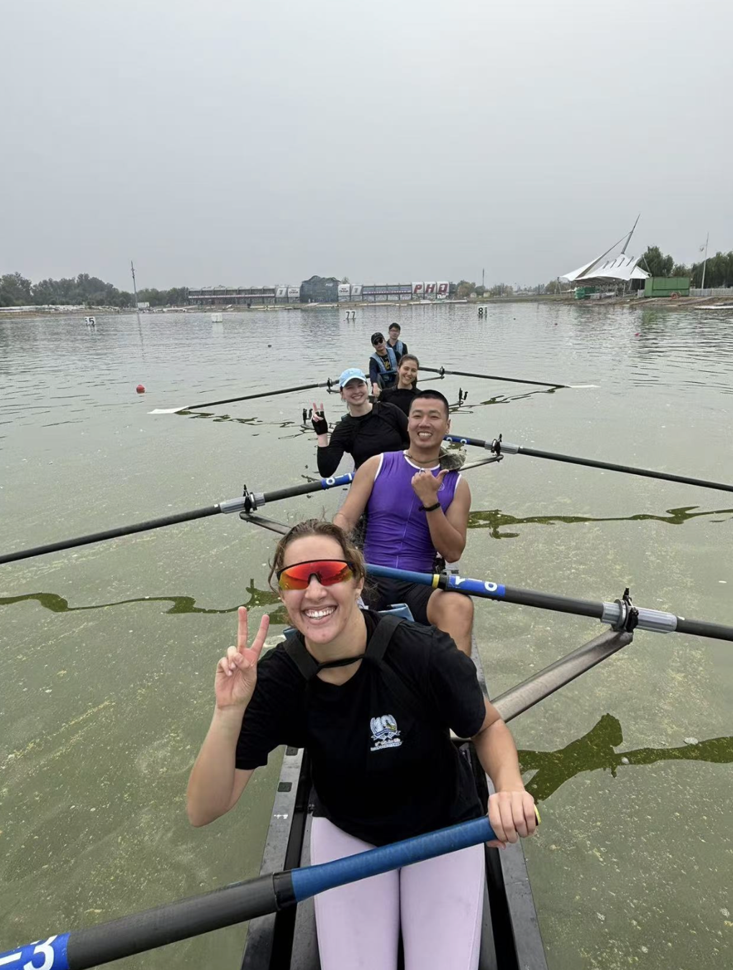
Yet, despite these incredible experiences, I’ve also encountered challenges unique to sports in China—challenges that mirror the broader difficulties of integrating into and understanding the country. Amateur sports—referring to non-professional athletics where competition can still be high-level—are still developing in China. Students are typically classified as either full-time students or full-time athletes, with very few student-athletes in between, a distinction that’s made to ensure academic processes like the Gaokao remain as fair as possible. Included in these restrictions are nationality-based regulations, and as a result, foreigners cannot fully participate in university teams and are often placed in separate clubs and foreigner-only competitions. For both Chinese and foreign students, it can lead to frustration as their competitive potential is blocked. As a whole, university sports clubs in China remain caught in a developmental dilemma, stuck between their recreational identity and the potential for more serious athletic growth.
Rowing is still a relatively new sport in China. It caught on momentarily in the leadup to the 2008 Olympics with events like the Gehua Cup pitting historic universities Tsinghua and Peking against one another, but a series of issues brought such competitions to a halt, and it's only been recently that new regattas have begun to spring up nationwide. As thrilling as it is amidst the growing popularity of the sport, at times these new regattas can seem more like performances than genuine competition. Attracting foreign athletes allows organizers to label events as “international” and often secures additional funding from the Chinese government, particularly in rural provinces. As a result, many of these large-scale events feel more driven by tourism bureaus than by athletes themselves.
On the other hand, this labeling also allows for the opportunity for Chinese teams to test their grit against some of the leading international rowing organizations. I, for one, never thought that I would get the opportunity to go toe-to-toe with Harvard, Yale, Cambridge, or Oxford, but that is exactly what happens in these events. It’s a fascinating dynamic—on one hand, it opens doors for cross-cultural exchanges, but on the other, it sometimes feels like foreign athletes are part of a larger performance rather than fully integrated competitors.
That’s not to say there aren’t immense privileges. International regattas are meticulously organized, complete with ceremonies, specially made medals, and extensive media coverage. We receive free hotels, meals, and transportation. I’ve signed autographs, taken photos with local mayors, performed on stage, and even helped promote small businesses—all because I am a foreigner in sports. I am grateful for these experiences, for the kindness and hospitality I have been shown, but there is also something disheartening in being held separate from my teammates who I train with, who put their blood, sweat, and tears into our little rowing club, but will not get the same attention for the sole reason that they are Chinese, and I am not. It’s an odd feeling.
One moment I would be cheering on my teammates, mingling with the other Chinese teams, and the next I am being taken away for an interview or realizing that my conversation with friends has been filmed the whole time. These moments highlight the persistent divide between foreign and Chinese students—the tension between hospitality and privilege, where generosity can sometimes reinforce separation rather than true integration.
I recall one regatta I attended where we stayed in a luxury hotel and performed on television with politicians and investors in the audience. It was fun—an unforgettable experience, filled with great food and fascinating conversations—but there was an odd undercurrent as the foreigners found themselves caught in the development race in China. We were part of a broader showcase, and for an athlete who has dedicated their life to a sport, it can be disheartening to realize that their presence is valued more for appearances than for their abilities.
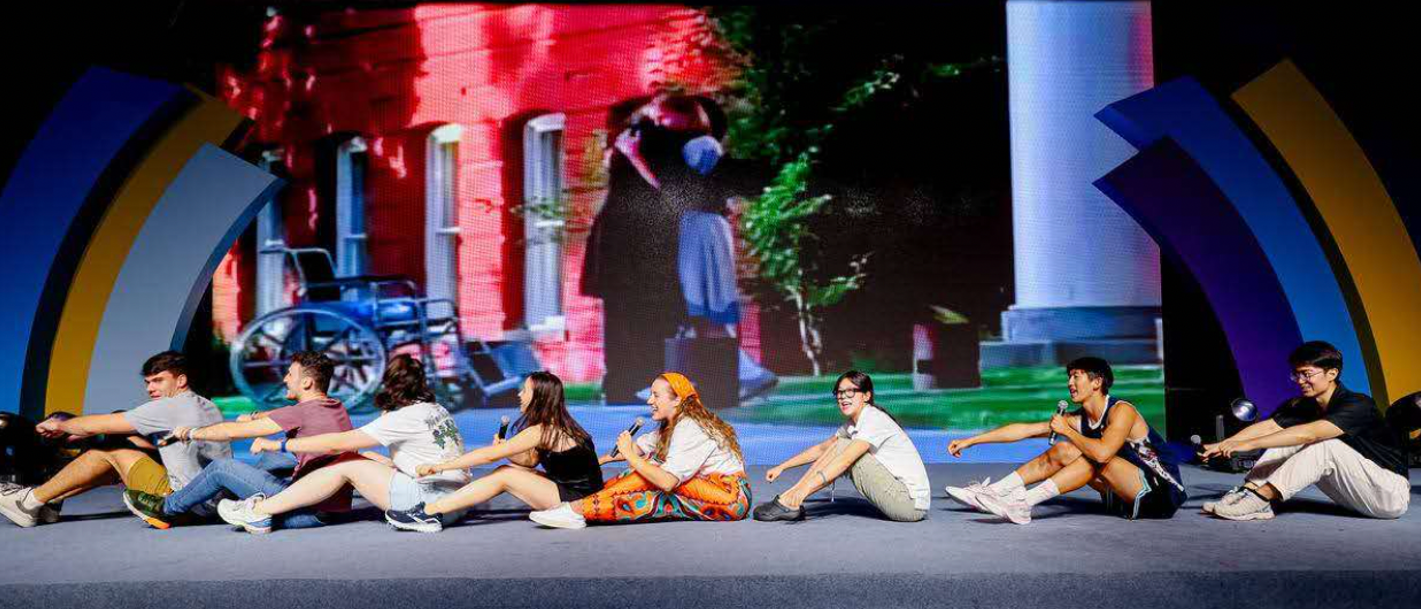
On the other hand, the joy I felt dancing on stage with all of my friends—completely at ease, completely belonging—was unmatched. After the performance, we ran to a nearby 7-11, grabbed snacks, and sat on a balcony talking for hours. It’s a memory I’ll always cherish, one of many beautiful moments I’ve shared with my teammates. There’s a bond forged in sports that’s hard to replicate elsewhere, and I truly believe it’s in these moments of vulnerability that real understanding begins to take root. But crossing cultural divides isn’t easy—it requires discomfort and humility. It means stumbling through conversations in unfamiliar languages, missing social cues, and not quite getting the joke. It’s awkward. It’s frustrating. But those small, uncomfortable moments? That’s where real connection begins.
I am reminded of how modern Sino-U.S. relations started: When people discuss the beginning of U.S.-China relations, most refer to the famous staged photos of Richard Nixon and Mao Zedong shaking hands. Many forget however, that the road was paved by a simple and earnest mistake: a ping pong player hopping on the wrong bus.
Glenn Cowan was only 18 when he missed his team’s bus at the 31st World Table Tennis Championships. Unsure of the protocol, he jumped on the next available bus—one that just so happened to belong to Team China. The atmosphere must have been deeply uncomfortable; not only was there a language barrier, but the Chinese team had been explicitly instructed not to speak with the Americans.
Despite this, on that tense morning, amid fierce competition and strained international relations, one Chinese player dared to cross the divide. Team China Captain Zhuang Zedong warmly shook Glenn’s hand and made an impulsive gesture—he reached into his bag and pulled out the first thing he could find, a painting of the Huangshan Mountains, and offered it to Glenn as a sign of friendship. Glenn, caught off guard, wanted to reciprocate but had nothing to give except a comb.
It’s such an endearing moment, often overshadowed by the posed photo that followed—the carefully orchestrated image that would later symbolize Ping-Pong Diplomacy. But to me, this was the real moment of diplomacy. Not the handshake in front of cameras, but the awkward, unscripted exchange between two young athletes who had nothing to offer but their love of the game and whatever they had on hand. Whether it be your best appearance, or a scrambled together attempt, the most important thing is a mutual recognition of genuine effort. In my own experience rowing in China, I have had to stop and remind myself of this: that understandings of genuine effort can be different. If my sloppy attempts and Chinese can be met with kindness, I should also do my best to acknowledge the challenges of integration but put my best foot forward as well.
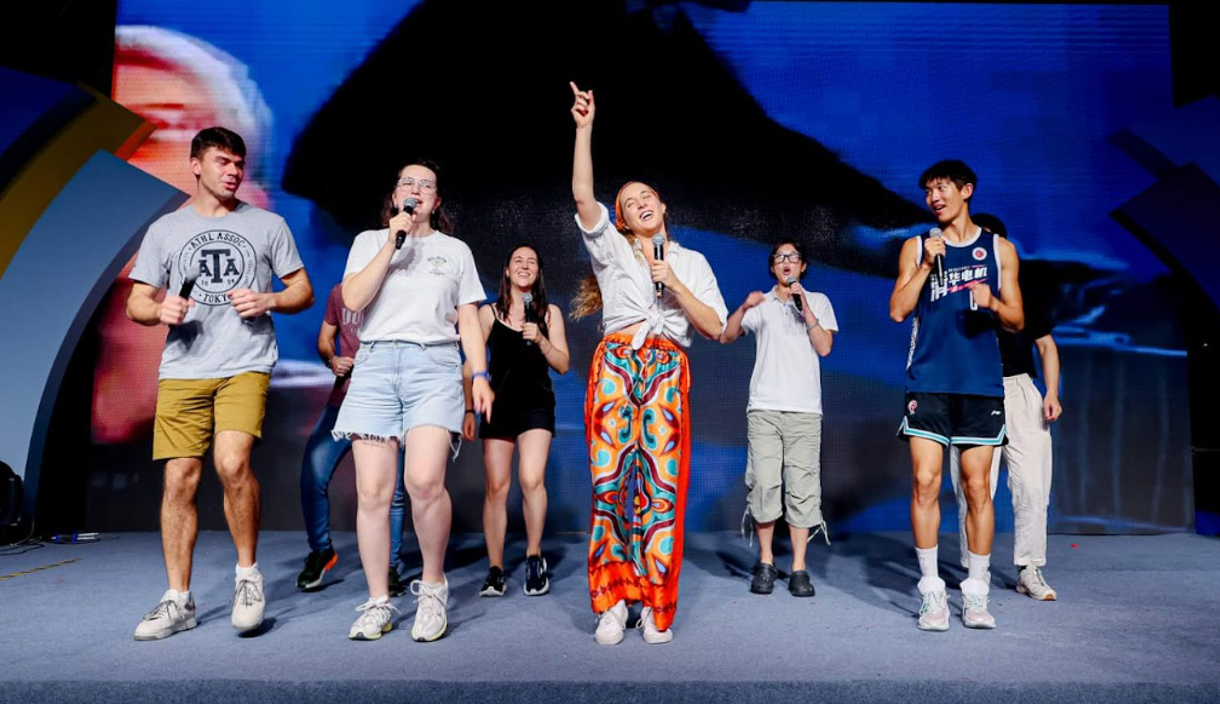
The need for more student exchanges between the United States and China is widely recognized, and athletics offers a unique avenue to attract new visitors. But how do we navigate the delicate balance between performance and authenticity, between showcasing our best appearances and fostering genuine relationships?
On one hand, there is an understandable desire to highlight progress—to present China’s latest developments, capture the joy of first-time visitors, and celebrate the thrill of Chinese and foreign athletes competing side by side. But on the other hand, there is the weight of expectation: the overwhelming feeling of being on display, the uncertainty of what is real and what is staged, and the pressure to perform rather than simply be.
At what point do we pose for the camera, and at what point do we stumble, laugh, and give a comb?
In the conversation about student and athlete-led diplomacy, there are two forces at play: those who orchestrate and those who actually shake hands. Both positions carry their own pressures, and both shape the nature of our connections. My experience in sports in China has shown me that the future of U.S.-China relations does not rest in large-scale diplomatic maneuvers, but in rediscovering the diamond in the rough—those moments of genuine connection where we find common ground once again.
Finding this common ground however requires more on-the-ground conversations, and I hope the experiences of students like me help shed some more light on these complex realities.